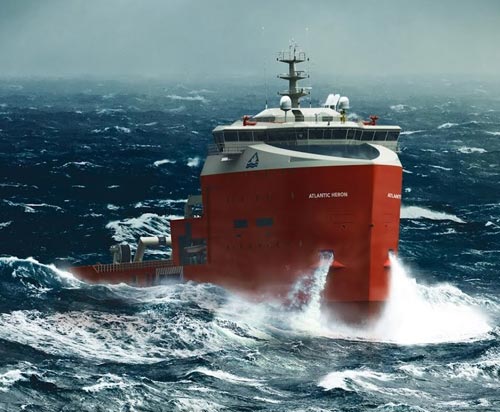Platform Supply Vessels: Essential Lifelines for Offshore Energy Operations

A PSV vessel (Platform Supply Vessel) is a type of offshore service vessel designed to transport supplies, equipment, and personnel to and from offshore oil rigs, platforms, and other marine structures. These vessels are crucial for supporting offshore oil and gas operations, particularly in deepwater or remote locations.
Key Features of a PSV Vessel:
Design:
PSVs are built to handle a variety of cargo types, including drilling equipment, fuel, water, spare parts, and construction materials, as well as personnel. They are designed for stability and maneuverability, especially in challenging weather and sea conditions.
PSVs typically have large cargo decks, which are open, flat areas on the vessel where materials can be loaded and unloaded.
Cargo Capacity:
These vessels are designed with substantial deck space and dedicated storage areas to accommodate a wide range of offshore supplies. PSVs can carry bulk liquids (like fuel), dry cargo (such as cement, tools, and equipment), and even containerized cargo.
Types of PSV Vessels:
- Standard PSV: A traditional design that provides general supply services, including bulk, liquid, and dry cargo transportation.
- DP2 PSV (Dynamic Positioning 2): A PSV equipped with advanced dynamic positioning systems that allow the vessel to maintain its position without the need for anchors. This is particularly useful for delivering supplies to offshore platforms that are in deep or challenging waters.
- Anchor Handling Tug Supply (AHTS): A PSV with additional tug capabilities, often used for handling anchors and towing operations in addition to supply services.
Dynamic Positioning System (DP):
Many modern PSVs are equipped with Dynamic Positioning (DP) systems that use GPS, thrusters, and sensors to maintain the vessel's position and heading without the need for anchors. DP2 is a higher level of dynamic positioning that provides redundancy and higher safety, especially in adverse weather conditions.
Operations:
PSVs are essential in the offshore oil and gas industry, where they regularly transport essential supplies such as fuel, water, chemicals, drilling equipment, and personnel to and from oil platforms.
They also provide emergency response capabilities and may be used for offshore construction projects, providing the transportation of building materials and equipment.
Crew and Personnel:
In addition to supplies, PSVs can carry personnel to offshore platforms, including engineers, technicians, and other crew members who need to access remote sites for maintenance or emergency response.
Safety Features:
PSVs are built with high safety standards, including safety equipment such as lifeboats, fire suppression systems, and personal protective equipment. Many vessels are also designed to operate in harsh environments, including rough seas and extreme weather conditions.
Fuel Efficiency and Environmental Considerations:
PSVs are designed to be fuel-efficient while minimizing their environmental impact. Newer PSV designs incorporate eco-friendly technologies such as energy-efficient engines and hulls, and some are also equipped with systems for treating ballast water to reduce marine pollution.
A Platform Supply Vessel (PSV) is an essential offshore vessel used primarily to transport supplies, materials, and personnel to and from offshore oil rigs, platforms, and construction sites. With specialized cargo capabilities, dynamic positioning systems, and a design suited for tough offshore environments, PSVs play a critical role in supporting offshore energy production and related industries.
Search Jobs
Seagoing Jobs
- Deck Officer Jobs (54)
- Deck Rating Jobs (30)
- Engineering Officer Jobs (95)
- Engineering Rating Jobs (45)
- Catering Rating Jobs (4)
- Specialist Jobs (21)
- Other Maritime Jobs (1)
Shore Side Jobs
- Shore Side Jobs (35)
- Marine Executive, Fleet Management and Advisor Jobs (1)
- Business Development, Management and Operational Jobs (2)
- Training, Technical, Project, Superintendent Jobs (15)
- Shore Side Engineer, Surveyor, Inspector Jobs (2)
- Insurance, P&I, Claims Jobs (11)
- HR, Owner Representative, General Office Jobs (4)
Offshore Jobs
- Offshore Jobs (12)
- Drilling / Rig Jobs (2)
- ROV/Diving Jobs (3)
- Production Jobs (0)
- Oilfield Services Jobs (1)
- Procurement & Construction Jobs (0)
- Engineering & Science Jobs (0)
- Geosciences Jobs (0)
- Maintenance & Inspection Jobs (0)
- Health, Safety & Environment Jobs (0)
- Refining & Petrochem Jobs (0)
- Business, IT, HR & Admin Jobs (1)
- Trades & Technicians Jobs (5)
- Other Offshore Jobs (0)

Share this page: